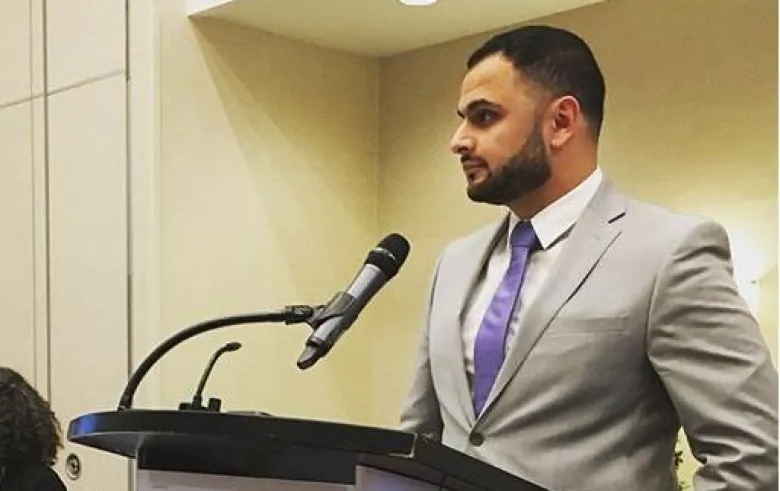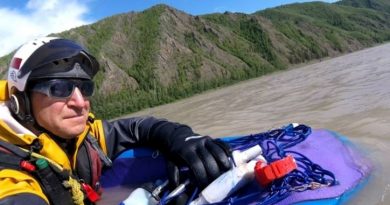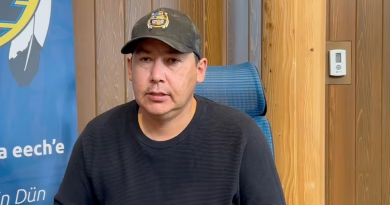Help line issues in Canada’s Northwest Territories raising concerns

Northwest Territories residents are flagging issues with a territorial help line meant to aid people in crisis.
Several people, who CBC has agreed not to name, have raised concerns after using the 24/7 help line. They’ve brought up wait times, not being able to reach responders, and responders being located outside of the territory.
The NWT Help Line offers free, confidential support to people struggling with stress, suicidal thoughts, abuse, sexual violence and depression. Fardous Hosseiny, a national mental health advocate, says help lines play a vital role in supporting people with mental health and emotional needs.
“Help lines play a critical role, you know even if it’s just having the reassurance of having someone else on the other line when they’re in a moment of crisis or a moment of high anxiety,” said Hosseiny, who is the interim national CEO of the Canadian Mental Health Association. “Just being able to have another voice to speak to goes a long way.”
According to the territorial Department of Health and Social Services, which is responsible for the help line, the average wait time for a call to be answered is two minutes.
“It is important for callers to stay in queue in order to be served quickly. To hang up and try again is not as efficient as staying on the line. No calls go unanswered when people use the system as intended,” a department spokesperson stated in an email.
Hosseiny said a two minute wait time is “fairly good,” but can feel “very long” to people in crisis.
“We could probably do better because in those moments, if someone is in a crisis, it’s critical to be able to get to them right away because they can feel very vulnerable and they can feel that they’re being neglected,” he said.
“To not have a phone line or another person on the other side picking up right away can be quite, quite damaging to the individual who has shown the bravery and the courage to come out and say, ‘I might need some help.'”

According to the Department of Health and Social Services, callers contacting the help line by cell phone may have experienced technical difficulties between July 7 and 8, 2019, when there was a country-wide issue with cellular service.
The department said it was only aware of one other issue when a call did not go through, in March of 2019. The problem was resolved by increasing the number of calls accepted at that time. The department added that the help line is periodically audited to “capture any systemic issues.”
Hosseiny said there are key elements that make a help line effective: confidentiality or anonymity; off-hours support and a variety of contact means, such as by phone and text message; crisis resolution, and having trained mental health professionals as responders.
He noted help lines are just one part of mental health care services.
500 calls in last year
Health and social services said the NWT Help Line has answered 500 calls from N.W.T. residents since July 2018. It contracts out responders to the Distress Centre of Ottawa and Region and said on average, there are 25 trained responders available every day, including on holidays.
While responders are located outside the territory, the department said they receive “locally developed training and orientation around our unique northern context.”
Hosseiny said although there’s a place for mental health professionals who have cultural and community-specific training, it’s ideal to have responders who are part of the community.
“They know the context, they know the environment, they know the day-to-day struggles of individuals within their communities,” he said.
The territorial government said if someone is not able to reach the NWT crisis line, they can provide the date and time of their call to the department’s system navigator at 1-855-846-9601. The department will try to determine what the issue was and take action to resolve it.
People can call the NWT Help Line at 1-800-661-0844. There are also group sessions available by phone on suicide and suicide awareness, depression and anxiety, grief and loss, recovery support and substance abuse/addiction.
Related stories from around the North:
Canada: Inuk student biking across Canada to raise awareness of suicide crisis among Inuit youth, CBC News
Finland: Canada’s Inuit hope Finland carries Indigenous suicide prevention torch further, Radio Canada International
Russia: Why high suicide rates in Arctic Russia?, Deutsche Welle’s Iceblogger
Sweden: Gender stereotypes behind high suicide rate, Radio Sweden
United States: Alaska’s suicide rates jump 13 percent, report shows, Alaska Public Media



